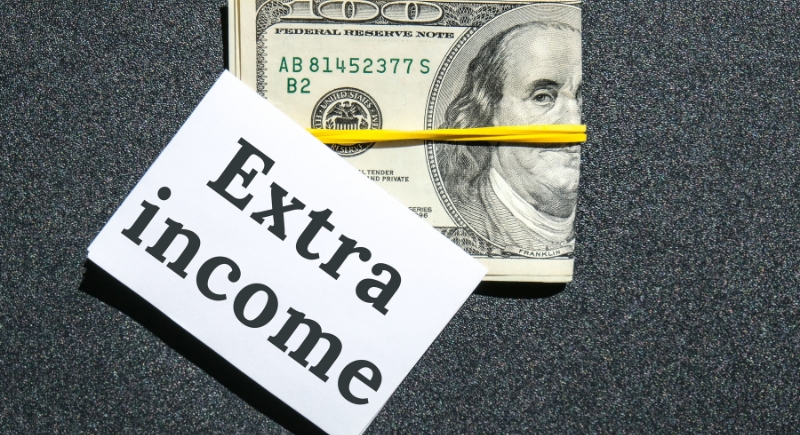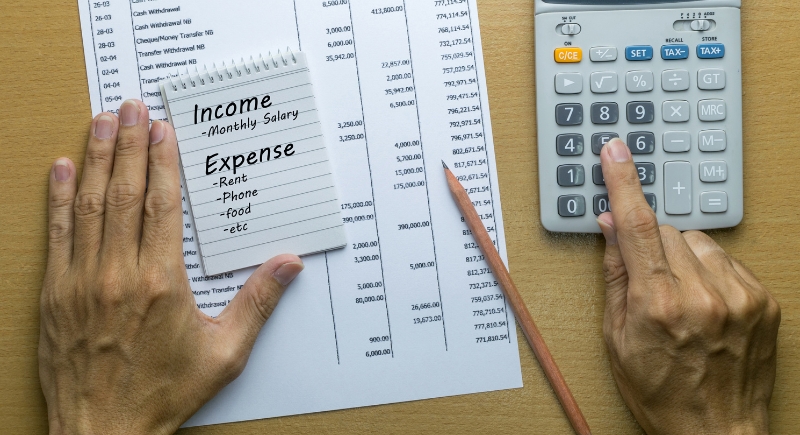If your money always seems to vanish by the end of the month, you're not alone. Living paycheck to paycheck has become all too common, especially with prices outpacing wages. But this cycle doesn’t have to last forever. These practical moves can help you take control of your finances.
Track the Real Problem

Credit: Getty Images
The first step is knowing what’s going wrong. Is it rising bills, too little income, or overspending? It might be emotional shopping after a hard day or ignoring small fees that add up. Once you spot the root cause, you can finally start working on a fix that makes sense.
Shrink the Splurge Zone

Credit: Getty Images
There is no need to cut out everything you enjoy. The key is to be intentional about how often you splurge. Keep one or two small treats, but rethink the rest. Limit how much you spend on extras and see how fast those small savings turn into something more useful and lasting.
Give Your Budget a Job

Credit: Getty Images
A working budget should feel like a plan, not a punishment. Start with your actual take-home pay. First, cover rent, groceries, and must-pay bills. Then, assign what's left to savings, debt, or responsible fun. Telling your money where to go ahead of time stops it from disappearing without explanation.
Build a Cushion, Not a Castle

Credit: Getty Images
Forget the idea that savings only count if they’re massive. A solid emergency fund starts with a few dollars consistently saved. Automate transfers to a separate account so you don’t think about it. What matters is building a habit that protects you when unexpected costs try to wreck your month.
Sell It or Skip It

Credit: Canva
If your closet, garage, or kitchen is hiding items you never touch, it’s time to cash in. Use local apps or online marketplaces to turn unused stuff into quick money. You’d be surprised what sells—old electronics, hobby supplies, or extra baby gear could help pad your emergency savings right away.
Add a Money Stream

Credit: Canva
Side hustles don’t have to eat up your life. Even picking up a few evening shifts or weekend gigs can make a difference. The trick is using that money wisely—put it toward debt or savings, not daily spending. Every extra dollar can be a step out of survival mode.
Plan for the Obvious

Credit: Getty Images
Not every surprise is really a surprise. You know that car tires won’t last forever. Appliances break. Instead of panicking later, start saving now for the stuff you know is coming. Set up a small “planned expenses” account, and keep it growing slowly so that future you isn’t scrambling for cash.
Don’t Spend the Raise

Credit: Getty Images
When your income grows, resist the urge to live bigger. That raise or bonus could finally give you breathing room—but only if you don’t blow it. Keep your current lifestyle and redirect the difference into savings or debt payments. It’s how small raises turn into big changes over time.
Cut the “Must-Have” Mentality

Credit: Getty Images
It’s easy to convince yourself that the new phone, bag, or car is essential, but that mindset keeps you broke. The truth is, most “must-haves” are wants in disguise. Get honest about what really matters. Living simply doesn’t mean going without—it means choosing freedom over stuff you’ll forget next month.
Talk to Someone You Trust

Credit: pexels
You don’t have to do this alone. Sharing your goals with a friend, family member, or even a financial coach can make a big difference. Regular check-ins help you stay on track and motivated. Plus, celebrating little wins with someone makes progress feel more real—and way more satisfying.
Automate the Essentials

Credit: freepik
The less you rely on willpower, the better, so set up your automatic payments for bills and savings transfers. This way, you don’t accidentally spend the money first. Automation removes the guesswork, lowers stress, and helps build better habits without requiring daily effort or constant reminders.
Rethink Your Living Space

Credit: Canva
Housing eats up a big chunk of income. If rent or mortgage payments are draining your budget, it might be time to consider a move—maybe a smaller space, a cheaper area, or taking on a roommate. Even a few hundred dollars in monthly savings can change your financial direction.
Learn Something Valuable

Credit: pixelshot
Some skills pay off fast, like bookkeeping, basic coding, or graphic design. Plenty of free or low-cost resources exist online. Adding skills like these to your resume might help you earn more, qualify for better roles, or even start charging for freelance gigs in your spare time.
Say No Without Guilt

Credit: Getty Images
Saying “no” to things that derail your financial goals is a skill. It’s totally fine to skip that dinner, turn down the group trip, or decline the upgrade. Protecting your budget isn’t selfish—it’s survival. Practice polite ways to decline without feeling like you’re missing out.
Check In Weekly

Credit: Canva
Money stress builds up when you don’t know where things stand. Set a regular weekly check-in with yourself, even if it’s five minutes on a Sunday. Glance at your bank balance, upcoming bills, and progress on your goals. A quick review can help stop problems before they start.
